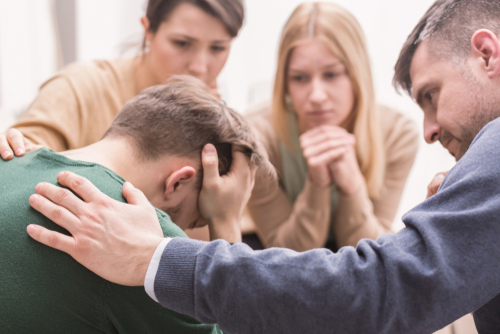With over 20 million Americans dealing with some form of addiction, it’s no surprise how so many families can negatively affected. Colorado was rated as the #1 state with the most people struggling with substance abuse. We sometimes focus on the problems of the addict alone and forget that the family members and friends of addicts suffer emotional, physical and sometimes financial damage too. Children, spouses, and extended family members can end up having issues from dealing with an addict and their behavior. Children can be forced to take on inappropriate roles, parents can feel guilt and spouses can feel helpless when living with an addict. Treatment and recovery from addiction should be something that the whole family is involved in. It’s never just the addiction of one person that is the whole problem. There are often other issues or mental health issues that complicate the recovery process. At Dual Diagnosis Denver recovery centers you can get help with your addiction and the underlying issues that you are struggling with. When families are forced to deal with an addict, it can change the relationships and roles that make up daily life. These emotional strains and unexpected roles can affect family members, especially children, for many years. We are going to take a look at how some of the vital family relationships are changed and strained by addiction. Family Roles The challenge that many family members of addicts struggle with is to keep a level of normality around the home. Covering and enabling an addict’s behavior often end up as a result of desperately trying to maintain the “status quo” and as a coping mechanism. Family members often take on one or more of these roles to help adapt to life with an addict. Enabler
- This is the person, often a parent or spouse that picks up the slack surrounding the addict. They take on the forgotten responsibilities whether personal or financial that the addict is neglecting. This can encourage the addict to continue their negative habits.
Scapegoat
- A family member, with the desire to take the “heat” off of the addict, will often act out and display negative behavior to get attention. This is often a child that will try to deflect focus away from a parent that is an addict, or who feels neglected and lashes out for any attention they can get.
Hero
- This person often becomes the over-achiever in the family. They will take on the financial responsibilities of the home and try to keep things running as normally as possible.
Mascot
- One person in the family will likely try to cut the drama of the home with humor and encouragement. They will repeatedly try to uplift the addict in an effort to get them to change.
Lost Child
- In an effort to avoid conflict, one member may become distant from the rest of the family. It can be difficult for this person to create relationships in other areas of their life as well.
Children of Addicts It is always the children that suffer the most in any negative family situation. The delicate balance of a home can be severely disrupted by the behavior of an addict. Children can be forced to witness events and circumstances that will negatively affect their emotional development. Children are in a constant state of change as they learn to navigate their own world. When there is an addict in the family, children can be forced into roles that are not appropriate for their age. A sense of responsibility that may be too heavy for a child to handle can fall upon them when they have a parent that is battling addiction. Children of addicts are 4 times more likely to develop substance abuse problems than any other children. The shame that a child feels about living with an addict can negatively affect their self-esteem and create trust issues that can follow them into adulthood. When a child is living with an addict they often miss out on opportunities that other children may take for granted. When a parent is unreliable it makes it hard for a child to participate in normal activities with their peers. Addicts are more focused on when and where they will get their next fix and less concerned about whether or not their child makes it to football practice or their dance recital. In many cases, a child with a parent that is an addict can end up being raised by other family members. It’s not unusual for grandparents or other extended family members to step in when there are children in the home of an addict. Although this may seem like a reasonable solution, the separation between child and parent can be devastating to both parties. Conclusion When talking about addiction, it’s important to remember that the disease does not only affect the addict. Everyone in the family is involved. The recovery process needs to include everyone. For true healing to begin, all relationships will need to be mended and healthy roles should be reestablished before the family can move forward.

